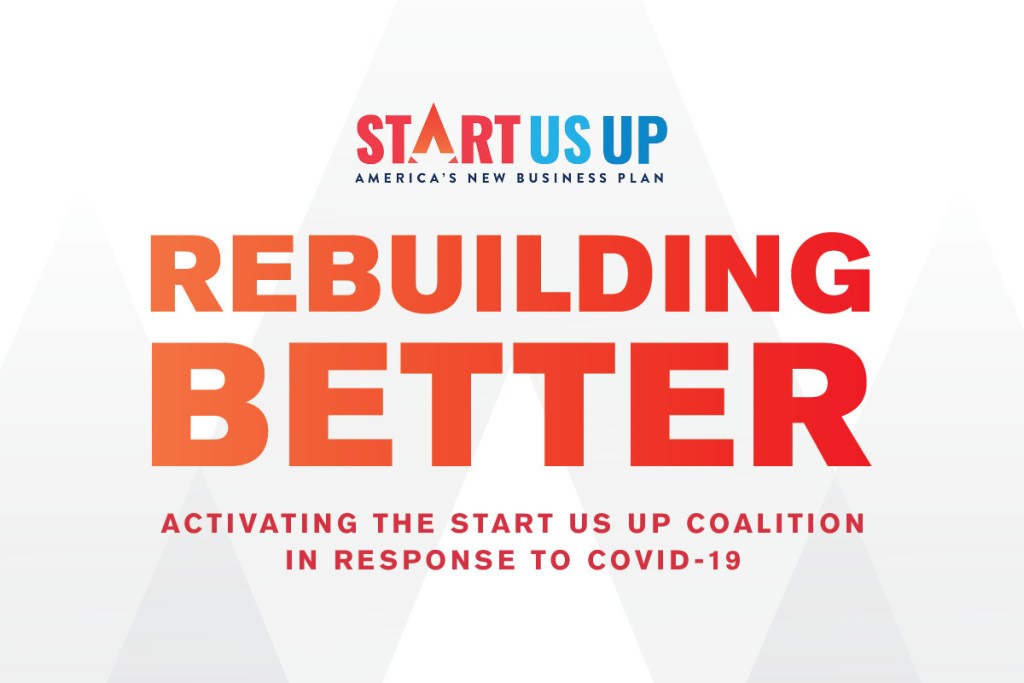In the past week, news outlets from the Wall Street Journal to the Economist have reported on what many view as a surprising pandemic trend: a surge in new business applications across the country.
Excluding gig economy workers, applications for employer businesses reached 1.1 million last month — a 12% increase over 2019, according to the Wall Street Journal. As stated by John Haltiwanger, an economist whose research on startups served as a foundation for America’s New Business Plan, “this pandemic is actually inducing a surge in employer business startups that takes us back to the days before the decline in the Great Recession.”
But Haltiwanger also offered a reality check: more than half of these businesses fail within five years, and with small business revenue down 21% since the beginning of the year, the prospects are perhaps even more grim.
But if entrepreneurs aren’t going to accept immediate defeat, nor should this country. In an economy desperately in need of a jolt, America’s entrepreneurial spirit has given policymakers a tremendous opportunity, and they can’t afford to let it slip.
Published in April as a response to the COVID-19 crisis, Start Us Up’s Rebuilding Better plan was divided into two sections: short-term “crisis response” recommendations to keep businesses open, and longer-term “rebuild better” recommendations aimed at a post-pandemic rebound. But with startup interest surging eight months into the pandemic, it’s clear the long-term strategies should no longer be viewed as existing solely for the long term. Rather, rising interest in entrepreneurship must be met with policies that encourage new business survival.
The full slate of “rebuild better” recommendations can be found below and represent tremendous opportunity for policymakers to compensate for recent shortcomings around short-term COVID-19 relief.
FUNDING
- Request that Congress make substantial funding available to states for strengthening the private financing of new businesses by expanding capital access through patient capital, innovative investment models and technologies, financing guarantees, user-centered service design, community banking, and other means.
- Establish clear goals for all federal capital access programs, including the number of new entrepreneurs who access capital (disaggregated by race, gender, socioeconomic class, and geography), revenues generated, new jobs created and sustained, and customer experience feedback.
OPPORTUNITY
- Create a single list of all requirements to start and run a business, and coordinate across agencies to simplify regulatory requirements and processes at the local, state, and federal levels.
- Establish a startup visa that authorizes foreign entrepreneurs to start businesses in the United States.
- Restrict the use of non-competes through outright bans or by shortening the maximum duration of these contracts and narrowing the scope of industries and jobs for which non-competes may be used.
- Replace occupational licensing with less onerous forms of regulation, such as certifications or permits, in industries where public health is not seriously threatened. For instance, in most states, it takes far longer to get a license to run a hair salon than to become an EMT.
KNOWLEDGE
- Develop competitive grants to modernize the 63 Small Business Development Centers (SBDCs), 900 service locations, and 3,000 One-Stop centers to become more user-friendly.
- Create pay-for-success models that provide federal support to organizations that serve entrepreneurs when certain agreed-upon benchmarks are met, such as the number of new businesses created, ease of accessing appropriate capital, increased revenues, new jobs created and sustained, and underserved areas and populations reached.
- Significantly expand the number of entrepreneur support organizations (ESOs) that receive workforce training funding.
- Include entrepreneurship and applicable information and tools in workforce training programs to help tens of thousands of young Americans start their own businesses.
SUPPORT
- Facilitate the development of a system of portable benefits that follow workers as they move across jobs or out of the workforce to start a business.
- Permit entrepreneurs to make “reach-back” contributions to their retirement accounts for a limited number of years, and have the tax deferral apply to the current tax year in which those payments are made. This policy recognizes that entrepreneurs often do not have income in the early years of a new business to put toward retirement, and it gives those who are willing to take the risk of starting a business the ability to catch up on their retirement contributions and save for the future when they are more likely to have the means to do so.
- Provide entrepreneurs who maintain residence in the state an exclusion from state income tax equal to the amount of student loan payments made in a year (up to a capped amount).

